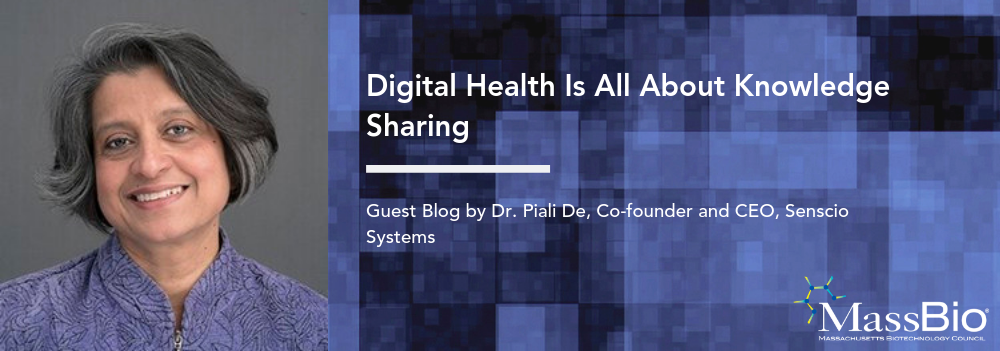
Now that it is well accepted that digitally stored health data is the way of the future, I find myself dreaming of the awesome power of that data. What should be done with it? The simple answer is that it should automatically be turned into actionable knowledge and shared with everyone who needs to know!
Healthcare is a team sport and the team leader should be the patient. After all, he or she has the most to gain or lose from the team’s performance. But the way healthcare is delivered today, the patient is hardly in charge! The reasons are many, but many of the roadblocks can be gradually removed if digital data from many sources were converted into actionable knowledge and widely shared, with the patient’s permission of course.
To highlight the transformative power of digital health data, let’s consider some of the challenges faced by persons with complex health: too many medications to manage, too many symptoms to be mindful of, too many doctors to visit and keep aligned. Simply said, too much to track and do, which makes it impossible to believe that one is ever in control. Now let’s imagine how digitally derived knowledge can simplify this very situation. If clinical therapy plans are digitally captured in some structured form, a system can construct a daily care plan that the patient can simply follow. What medications to take and when, what to eat and when, what exercises to do today, when to make an appointment with a doctor, what symptoms to check and when, are all part of daily care planning that a software system can develop with greater efficacy than a person can. If a person dutifully follows a system derived daily care plan, adherence to clinically prescribed therapy plan naturally improved, yielding better health and a sense of pride and control.
Now let’s consider the challenges faced by a son living away from an aging mother and wanting to be more supportive. If data about how well the mother is adhering to her therapy plan on a daily basis is shared with the son, he can engage in his mother’s care with much more knowledge. Conversations become more meaningful and productive, creating more joy and peace of mind.
Let’s imagine how digital knowledge can bring more calm to an already harried medical practice. When patients are guided everyday by digitally deliver knowledge, the phones ring less. The same digital system can produce the evidence needed to efficiently and effectively diagnose emerging health problems. Data collection and synthesis consumes less time, leaving the clinician with time to actually diagnose and treat. And what about the maddening challenge of record sharing? Digital health systems can automatically send precise reports to a clinician with a need to know, freeing up staff time to be with patients.
When a digital system supports self-management, supports caregivers, shares knowledge smartly and de-hassles a clinical practice, the awesome power of digital health data comes into its full force. All of this happens when data from the home, clinician’s office, social services, and acute care setting are collected in a person-centered data repository. The process of turning the data into person-centered knowledge happens at the repository. At the same repository, knowledge about an individual can be integrated with knowledge about other individuals, to create population level knowledge. What therapies work for which population can be derived, leading to more precise therapies for both individual and population.
Lest one thinks that this is all a futuristic dream, I can point to multiple companies who have already taken us well down this road, doing some or most of what we just imagined. For example, our company, Senscio Systems, has developed an AI based health management system called Ibis that does much of this knowledge creation and sharing. Our peers, Wellframe, Omada Health and Livongo Health are other shining examples. We are well on our way to an exciting future in healthcare where data from all care settings, particularly the home, are synthesized into actionable knowledge that makes healthcare patient led, proactive, precise and personal. And that is the awesome power of digital health.
To hear more from Piali, register for MassBio's first-ever Digital Health Impact 2019 event